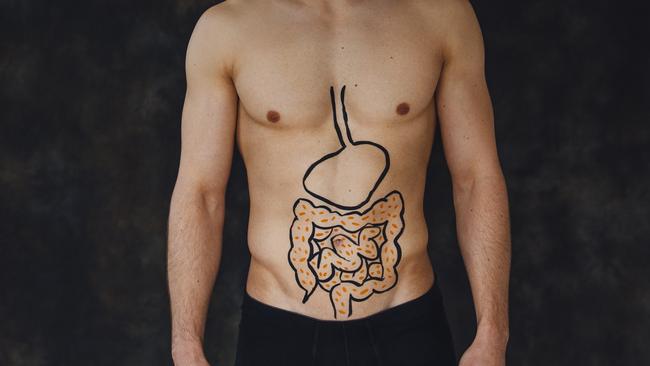Gut is the core of good health
Often we focus on how things look on the outside rather than how things are functioning on the inside.

Often we focus on how things look on the outside rather than how things are functioning on the inside. For example, your waist circumference and where you carry any extra weight says a lot about obesity but only hints at the health of your actual gut, despite its key role.
The gastrointestinal system might not be visible to the outside world but its function is reflected in many other aspects of our health.
That’s why official dietary guidelines are designed to promote a healthy weight while at the same time fostering good gut health.
The gut isn’t just a trash compactor, processing anything and everything you swallow; it is an ecosystem of micro-organisms that needs to be maintained for the benefit of your physical health and mental wellbeing.
The CSIRO has launched the Total Wellbeing Diet for Gut Health program, in recognition of the importance of gut health to weight loss.
“Fifty per cent of Australians experience digestive upsets and one in seven distressing gut symptoms that affect their quality of life,” says CSIRO research scientist Gilly Hendrie.
“Including plenty of fibre from a diverse range of whole foods is vital for a healthy gut.
“People who are overweight or obese generally have less than the recommended amount of fibre in their diet. But they may actually need to eat much more fibre, especially readily fermentable types, to overcome the adverse effects of an unhealthy diet.”
According to the CSIRO, eating a diverse range of fibres from wholefood sources such as wholegrain cereals, legumes, vegetables and fruit can also help people lower their cholesterol and blood sugar levels.
“If you’re looking to lose weight, listening to your gut and eating a balanced diet high in fibre and protein will help relieve your gut symptoms and reduce your waistline without feeling ravenously hungry,” Hendrie says.
If the current rates of smoking, drinking and overconsumption continue, Australia will have another 45,000 cases of bowel cancer over the next 10 years.
That is the prediction from UNSW’s Centre for Big Data Research in Health, which attributed 11 per cent of the future bowel cancer burden to people having smoked, and 4 per cent to being current smokers; 11 per cent to being overweight or obese; and 6 per cent to excessive alcohol consumption.
“Combined, these factors will be responsible for one in four future bowel cancers, even more so for men (37 per cent of bowel cancers) than women (13 per cent),” says associate professor Claire Vajdic.
“If people changed their behaviours accordingly, a large proportion of this future burden could be avoided.”
The Australian Institute of Health and Welfare, meanwhile, has attributed 54 per cent of the nation’s oesophageal cancer burden to tobacco use and 40 per cent of the liver cancer burden to alcohol use.
The health of the gut, and specifically the microbiota it houses, is the subject of an increasing amount of research aimed at determining its role in causing, and curing, various illnesses.
Studies are helping to define the factors that change the microbiota — for example food additives — and the impact this has on health, such as the early changes thought to cause inflammatory disorders later in life.
One emerging therapy showing promise as a means of treating inflammatory bowel disease is known colloquially as a poo transplant.
University of NSW medical researchers contributed to a study published in the journal Gastroenterology in December showing the types of bacteria that work best in faecal microbiota transplantation.
“This is a milestone in what will be a longer process of developing microbial mixtures that are effective at inducing remission,” says Nadeem Kaakoush.
“Many of these microbial-based therapies will end up being individualised down the line, as what works for one patient might be a little different from what works in other patients.”
Too many invasive gastrointestinal procedures are being performed in Australia without evidence the patient will benefit.
The Australian Commission on Safety and Quality in Health Care is concerned these interventions are more common in some areas than others, with a seven-fold variation in the rate of inpatient colonoscopy and a seven-fold variation in the rate of hospitalisation for inpatient gastroscopy.
As it investigates the reasons for the variation, the commission has released new clinical guidelines for colonoscopies to ensure doctors don’t order procedures, and alarm patients, unnecessarily.
The latest Australasian Clinical Indicator Report also highlighted an increase in patients suffering certain side effects after a gastrointestinal endoscopy, despite efforts to improve outcomes.



To join the conversation, please log in. Don't have an account? Register
Join the conversation, you are commenting as Logout